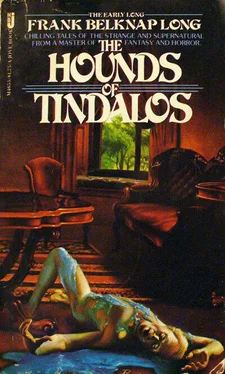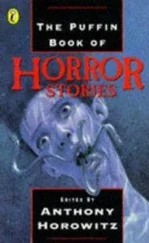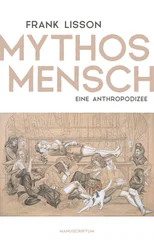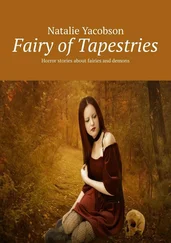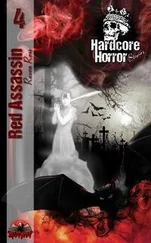"Thank you," I said.
"All human brains are prosaic," he elaborated. "I meant no offense. It is the shadowy terrors that lurk behind and above them that are mysterious and awful. Our little brains — what can they know of vampire-like entities which may lurk in dimensions higher than our own, or beyond the universe of stars? I think sometimes they lodge in our heads, and our brains feel them, but when they stretch out tentacles to probe and explore us, we go screaming mad." He was staring at me steadily now.
"But you can't honestly believe in such nonsense!" I exclaimed.
"Of course not!" He shook his head and laughed. "You know damn well I'm too profoundly skeptical to believe in anything. I have merely outlined a poet's reactions to the universe. If a man wishes to write ghostly stories and actually convey a sensation of horror, he must believe in everything — and anything. By anything I mean the horror that transcends everything, that is more terrible and impossible than everything. He must believe that there are things from outer space that can reach down and fasten themselves on us with a malevolence that can destroy us utterly — our bodies as well as our minds."
"But this thing from outer space — how can he describe it if he doesn't know its shape — or size or color?"
"It is virtually impossible to describe it. That is what I have sought ¦to do — and failed. Perhaps someday — but then, I doubt if it can ever be accomplished. But your artist can hint, suggest…"
"Suggest what?" I asked, a little puzzled.
"Suggest a horror that is utterly unearthly; that makes itself felt in terms that have no counterparts on Earth."
I was still puzzled. He smiled wearily and elaborated his theory.
"There is something prosaic," he said, "about even the best of the classic tales of mystery and terror. Old Mrs. Radcliffe, with her hidden vaults and bleeding ghosts; Maturin, with his allegorical Faust-like hero-villains, and his fiery flames from the mouth of hell; Edgar Poe, with his blood-clotted corpses, and black cats, his telltale hearts and disintegrating Valdemars; Hawthorne, with his amusing preoccupation with the problems and horrors arising from mere human sin (as though human sins were of any significance to a coldly malign intelligence from beyond the stars). Then we have modern masters — Algernon Blackwood, who invites us to a feast of the high gods and shows us an old woman with a harelip sitting before a ouija board fingering soiled cards, or an absurd nimbus of ectoplasm emanating from some clairvoyant ninny; Bram Stoker with his vampires and werewolves, mere conventional myths, the tag-ends of mediaeval folklore; Wells with his pseudo-scientific bogies, fish-men at the bottom of the sea, ladies in the moon, and the hundred and one idiots who are constantly writing ghost stories for the magazines — what have they contributed to the literature of the unholy?
"Are we not made of flesh and blood? It is but natural that we should be revolted and horrified when we are shown that flesh and blood in a state of corruption and decay, with the worms passing over and under it. It is but natural that a story about a corpse should thrill us, fill us with fear and horror and loathing. Any fool can awake these emotions in us — Poe really accomplished very little with his Lady Ushers, and liquescent Valdemars. He appealed to simple, natural, understandable emotions, and it was inevitable that his readers should respond.
"Are we not the descendants of barbarians? Did we not once dwell in tall and sinister forests, at the mercy of beasts that rend and tear? It is but inevitable that we should shiver and cringe when we meet in literature dark shadows from our own past. Harpies and vampires and werewolves — what are they but magnifications, distortions of the great birds and bats and ferocious dogs that harassed and tortured our ancestors? It is easy enough to arouse fear by such means. It is easy enough to frighten men with the flames at the mouth of hell, because they are hot and shrivel and burn the flesh — and who does not understand and dread a fire? Blows that kill, fires that burn, shadows that horrify because their substances lurk evilly in the black corridors of our inherited memories — I am weary of the writers who would terrify us by such pathetically obvious and trite unpleasantness."
Real indignation blazed in his eyes.
"Suppose there were a greater horror? Suppose evil things from some other universe should decide to invade this one? Suppose we couldn't see them? Suppose we couldn't feel them? Suppose they were of a color unknown on Earth, or rather, of an appearance that was without color?
"Suppose they had a shape unknown on Earth? Suppose they were four-dimensional, five-dimensional, six-dimensional? Suppose they were a hundred-dimensional? Suppose they had no dimensions at all and yet existed? What could we do?
"They would not exist for us? They would exist for us if they gave us pain. Suppose it was not the pain of heat or cold or any of the pains we know, but a new pain? Suppose they touched something besides our nerves — reached our brains in a new and terrible way? Suppose they made themselves felt in a new and strange and unspeakable way? What could we do? Our hands would be tied. You cannot oppose what you cannot see or feel. You cannot oppose the thousand-dimensional. Suppose they should eat their way to us through space!"
He was speaking now with an intensity of emotion which belied his avowed skepticism of a moment before.
"That is what I have tried to write about. I wanted to make my readers feel and see that thing from another universe, from beyond space. I could easily enough hint at it or suggest it — any fool can do that — but I wanted actually to describe it. To describe a color that is not a color! a form that is formless! "A mathematician could perhaps slightly more than suggest it. There would be strange curves and angles that an inspired mathematician in a wild frenzy of calculation might glimpse vaguely. It is absurd to say that mathematicians have not discovered the fourth dimension. They have often glimpsed it, often approached it, often apprehended it, but they are unable to demonstrate it. I know a mathematician who swears that he once saw the sixth dimension in a wild flight into the sublime skies of the differential calculus.
"Unfortunately I am not a mathematician. I am only a poor fool of a creative artist, and the thing from outer space utterly eludes me."
Someone was pounding loudly on the door. I crossed the room and drew back the latch. "What do you want?" I asked. "What is the matter?"
"Sorry to disturb you, Frank," said a familiar voice, "but I've got to talk to someone."
I recognized the lean, white face of my nearest neighbor, and stepped instantly to one side. "Come in," I said. "Come in, by all means. Howard and I have been discussing ghosts, and the things we've conjured up aren't pleasant company. Perhaps you can argue them away."
I called Howard's horrors ghosts because I didn't want to shock my commonplace neighbor. Henry Wells was immensely big and tall, and as he strode into the room he seemed to bring a part of the night with him.
He collapsed on a sofa and surveyed us with frightened eyes. Howard laid down the story he had been reading, removed and wiped his glasses, and frowned. He was more or less tolerant of my bucolic visitors. We waited for perhaps a minute, and then the three of us spoke almost simultaneously. "A horrible night!" "Beastly, isn't it?" "Wretched."
Henry Wells frowned. "Tonight," he said, "I–I met with a funny accident. I was driving Hortense through Mulligan Wood…"
"Hortense?" Howard interrupted.
"His horse," I explained impatiently. "You were returning from Brewster, weren't you, Henry?"
"From Brewster, yes," he replied. "I was driving between the trees, keeping a sharp lookout for cars with their lights on too bright, coming right at me out of the murk, and listening to the foghorns in the bay wheezing and moaning, when something wet landed on my head. 'Rain,' I thought. 'I hope the supplies keep dry.'
Читать дальше
